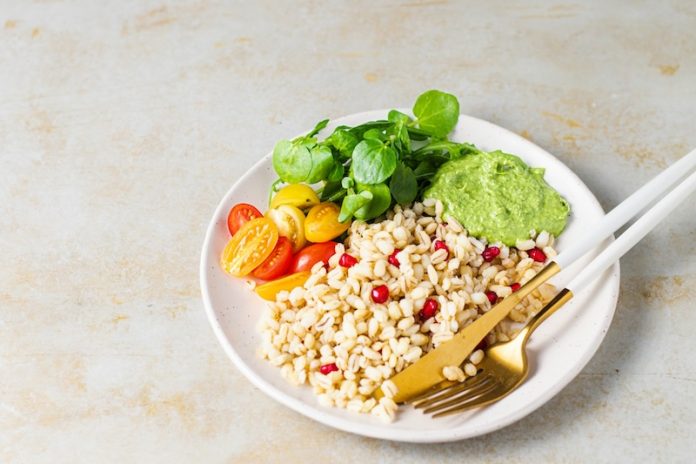
Barley, a grain often used in soups, bread, and cereals, has been recognized as a heart-friendly food that can help reduce cholesterol. Researchers have studied this grain extensively and found that it contains special nutrients that play a role in keeping cholesterol levels in check.
Lowering cholesterol is crucial for heart health, as high cholesterol levels can lead to clogged arteries and increase the risk of heart attacks or strokes.
The key ingredient in barley that helps fight cholesterol is called beta-glucan. This is a type of soluble fiber, which means it dissolves in water to form a gel-like substance in the digestive system.
When consumed, beta-glucan binds to cholesterol in the gut and helps remove it from the body before it gets absorbed into the bloodstream. This process can lower both total cholesterol and LDL cholesterol, often referred to as “bad cholesterol.”
Scientific studies back up barley’s role in reducing cholesterol. One large review of clinical trials published in the American Journal of Clinical Nutrition analyzed 14 studies involving over 500 participants. It found that eating barley significantly lowered LDL cholesterol by an average of 7%.
The studies also showed a small decrease in total cholesterol without affecting HDL, the “good cholesterol” that helps protect the heart. These findings suggest that barley can be a safe and natural way to improve heart health.
Another study conducted in Canada found that people who included barley in their diets for just four weeks saw notable improvements in their cholesterol levels.
Researchers in this study emphasized that even small amounts of barley—around 3 grams of beta-glucan per day—were enough to make a difference. This amount can be found in a single serving of barley-based food, such as barley soup or porridge.
Barley also supports heart health in other ways. It helps regulate blood sugar levels, which is especially beneficial for people with diabetes or those at risk of developing the condition.
Stable blood sugar levels reduce inflammation in the body, which is linked to heart disease. In addition, barley is rich in vitamins, minerals, and antioxidants that support overall health.
One of the reasons barley is so effective is because its beta-glucan content slows down the digestion and absorption of food, which gives the body more time to remove cholesterol.
This means that incorporating barley into meals can have a lasting positive impact, especially when eaten regularly. It is also versatile and easy to include in the diet. Barley can be added to soups, stews, salads, or even baked goods.
However, while barley is beneficial, it works best when combined with a healthy lifestyle. Eating plenty of fruits, vegetables, and other whole grains, along with regular physical activity, enhances its cholesterol-lowering effects.
It’s also important to note that some people, like those with gluten sensitivity, may need to check with a doctor before adding barley to their diets.
Barley’s cholesterol-lowering properties have even earned it recognition from health authorities.
For instance, the U.S. Food and Drug Administration (FDA) allows food manufacturers to label barley-containing products with a claim that they may reduce the risk of heart disease when consumed as part of a healthy diet. This highlights the strong scientific evidence supporting barley’s role in heart health.
In summary, barley is a simple, affordable, and natural way to help reduce cholesterol and protect the heart. Its beta-glucan content is the star ingredient, working to remove harmful cholesterol from the body and improve overall health.
With its wide range of uses and proven benefits, barley is a valuable addition to any diet aimed at supporting long-term heart health.
If you care about heart health, please read studies about how vitamin D influences cholesterol levels, and what we know about egg intake and heart disease.
For more health information, please see recent studies about best supplements for heart disease prevention, and wild blueberries can benefit your heart and brain.
Copyright © 2024 Knowridge Science Report. All rights reserved.



